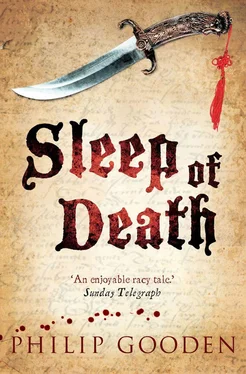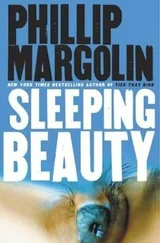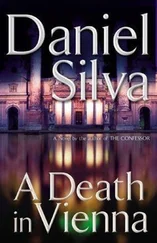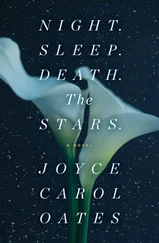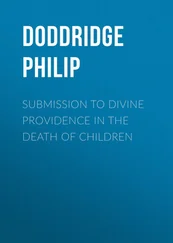Philip Gooden - Sleep of Death
Здесь есть возможность читать онлайн «Philip Gooden - Sleep of Death» весь текст электронной книги совершенно бесплатно (целиком полную версию без сокращений). В некоторых случаях можно слушать аудио, скачать через торрент в формате fb2 и присутствует краткое содержание. Год выпуска: 0101, ISBN: 0101, Издательство: Constable & Robinson, Жанр: Исторический детектив, на английском языке. Описание произведения, (предисловие) а так же отзывы посетителей доступны на портале библиотеки ЛибКат.
- Название:Sleep of Death
- Автор:
- Издательство:Constable & Robinson
- Жанр:
- Год:0101
- ISBN:9781472104311
- Рейтинг книги:5 / 5. Голосов: 1
-
Избранное:Добавить в избранное
- Отзывы:
-
Ваша оценка:
- 100
- 1
- 2
- 3
- 4
- 5
Sleep of Death: краткое содержание, описание и аннотация
Предлагаем к чтению аннотацию, описание, краткое содержание или предисловие (зависит от того, что написал сам автор книги «Sleep of Death»). Если вы не нашли необходимую информацию о книге — напишите в комментариях, мы постараемся отыскать её.
Sleep of Death — читать онлайн бесплатно полную книгу (весь текст) целиком
Ниже представлен текст книги, разбитый по страницам. Система сохранения места последней прочитанной страницы, позволяет с удобством читать онлайн бесплатно книгу «Sleep of Death», без необходимости каждый раз заново искать на чём Вы остановились. Поставьте закладку, и сможете в любой момент перейти на страницу, на которой закончили чтение.
Интервал:
Закладка:
There was a pause. The sunlight glanced off the water. I waited, with indrawn breath.
‘It was no tragedy,’ said WS. ‘You are right, and the audience at that performance was right to respond as they did. I didn’t piss myself — but I laughed long and loud.’
‘You see,’ said Robert Mink, almost triumphantly. ‘I cannot write verses. I cannot write a tragedy neither. But I can create one. I can do in real life what you only do on paper. So who is the better?’
Then Mink did an extraordinary thing, or a thing even more extraordinary than what he had already done. He bent down and retrieved from the bottom of the boat a crown. It took me a moment to recognise it as the prop which he had been wearing in the part of the Player King. Because he was no true king, but merely a player playing a king in the play-within-the-the-play, the crown did not match Claudius’s for heaviness and splendour. Instead it was a piece of trumpery, lightweight, crudely gold-painted. It was meant to signify to the audience ‘king’, simply and without more ado. He must have tucked it away somewhere in his costume, as he hurried from the theatre and then out into the alleyways down to the river.
‘Who wears the crown?’ he said, grinning. ‘Tell me, who wears the crown?’
‘You do,’ said WS. ‘It is yours.’
‘Sir! Sir!’
All this time Adam Gibbons had been quietly dipping and splashing his oars to keep the two boats on a parallel circular course. I don’t know whether he was listening to the conversation between the two players or — if he was — what he made of it, but now a more pressing consideration had come up. I’d been so engrossed in what I was hearing and in my own shivering, quivering state that I’d been only a quarter aware of our surroundings.
‘The Bridge, sir!’
We were caught up in a gently revolving eddy but, as well as making slow circles, we were also travelling downstream with the current. The tide, which must have been at its height when we boarded Adam’s boat, was ebbing and our two roped vessels were going downriver with it. When, minutes before, I’d glimpsed the buildings of London Bridge, I’d not grasped how close we were running to it. The great starlings or bases that supported the piers, nearly two dozen of them, loomed close. The spaces between the piers gaped like so many hungry river mouths. The merchants’ houses above looked more like cliffs of wood than human habitations. The roaring, which we must have been hearing for the last few minutes without properly attending to its cause, and which was produced by the constriction and the forcing of the waters through the piers, seemed to grow deafening.
Now, it is possible to pass through the arches — but the prudent traveller disembarks well before reaching the Bridge and continues his journey on foot. And you can be sure that any boatman making the passage would expect extra for his pains and the risk he takes. With our two boats the risk was considerable. We were still joined by rope. Robert Mink, disappointed tragedian and multiple murderer, was no oarsman. In fact, he had only one oar remaining.
Master WS spoke. He mixed firmness and persuasion. ‘Now, Adam, there is still time but we run the risk of being carried away on the tide or, worse, of being battered against one of the piles. Only your strength and skill can save us now.’
He neglected to mention, by the by, that it was his own skill — with a silver tongue — that had persuaded Adam to take his boat out in the first place and so put himself, and the ferryman, and me, all at risk. But Adam did not appear to harbour any resentment against this man who might be leaving a boatman’s widow and children unprovided for in this harsh world, or depriving the English stage of its finest adornment, or snuffing out the life of an obscure West Country parson’s son turned player.
‘Pull, man, pull. Robert Mink, you have an oar. Use it!’
Half crouching in the stern, Master WS issued orders and encouragements. Adam Gibbons dug into the task with a will. His back bent and straightened, bent and straightened, his breath came thick and short, sweat poured down his face and dripped off his beard, still matted with the rain. If Master WS was fearful he didn’t show it. I wondered that he didn’t seize a oar for himself and begin to paddle — the thought occurred to me to do it — and then I realised his thinking was clearer than mine. Adam was the expert here, his was the skill and strength. If we were to be saved at all it would be by the boatman.
Despite his best efforts, however, we were drifting closer to the Bridge. The roaring of the waters was growing louder, the cliffs of houses rising higher, the gaps between the piers gaping wider. White, knife-like crests formed as the water pushed against the outworks of the great piers. Cords of sinew stood out on the oarsman’s neck and temples and arms. The rope between the boats was taut. In the background Master Mink was making motions with his remaining oar. I shut my eyes. When I opened them again, our position seemed unchanged.
And then I understood that our boatman was winning the struggle. If we had not put a distance between ourselves and the Bridge we were, at least, no closer to it. The size of the piers and the buildings surmounting them remained constant. I silently willed him on, with clenched hands and gritted teeth. All the time Master WS spoke encouragement and praise. Slowly, slowly, we pulled away from the Bridge, against the current; slowly, slowly, we struck out on a diagonal for the southern shore.
But then we seemed to, as it were, leap forward. The reason was not far to seek. Robert Mink, understanding that Adam was succeeding in the task of drawing us back towards dry land and safety, had unhitched the rope that fastened his craft to ours. As the gap between the boats widened he shouted out again, ‘Who is the better, playwright? Who is the better?’
He stood unsteadily in the little ferryboat as it was borne back and away by the current towards the Bridge. By twisting round in the stern, WS and I had a good view of what happened next. Adam kept tugging on his blades, ferrying us to terra firma, unable to see much of what was taking place over our turned shoulders. Probably he wouldn’t have been interested anyway. Just another accident on the river. An unskilled sailor. A dry-land mariner.
Mink’s craft, bearing him alone for captain and crew, dwindled in our sight. He continued to look in our direction, rather than at the course on which the current was taking him. He was washed nearer and nearer to the Bridge and I thought that he would slip between one of the central arches like a morsel of butter down a gullet. Once beyond them, if he did not capsize, he might well be able to make for the shore and the wilds of Essex or Surrey. But at the last moment, rather than capsizing, his little boat swerved and smashed hard into one of the great piers. We were too distant to hear anything apart from a far-off scraping and cracking sound above the low thunder of the descending water. The bow of the boat tilted and upended as if it the waves really intended to swallow it in one gulp and I thought I saw a small figure topple into the fast-flowing stream. The dot of a head was visible against the blue sky between a pair of arches. Then the head vanished as swift as if it had been wiped away.
I wondered what had happened to his poor trumpery crown. Then I surprised myself by discovering fresh tears coursing down my face.
‘Come, Nick,’ said Master WS, as we reached dry land. ‘There is still a little business to conclude for this day.’
And business there was.
The sun was shining as we raced through the streets, WS in the lead. Steam rose from the gutters and rooftops.
I was alternately sweating and shivering when we reached the Globe, and everything seemed to be occurring in a dream from which I would surely soon awaken. Somewhere on the way I lost my — Adrian’s — tall, villainous hat. His cloak still clung to my back.
Читать дальшеИнтервал:
Закладка:
Похожие книги на «Sleep of Death»
Представляем Вашему вниманию похожие книги на «Sleep of Death» списком для выбора. Мы отобрали схожую по названию и смыслу литературу в надежде предоставить читателям больше вариантов отыскать новые, интересные, ещё непрочитанные произведения.
Обсуждение, отзывы о книге «Sleep of Death» и просто собственные мнения читателей. Оставьте ваши комментарии, напишите, что Вы думаете о произведении, его смысле или главных героях. Укажите что конкретно понравилось, а что нет, и почему Вы так считаете.
